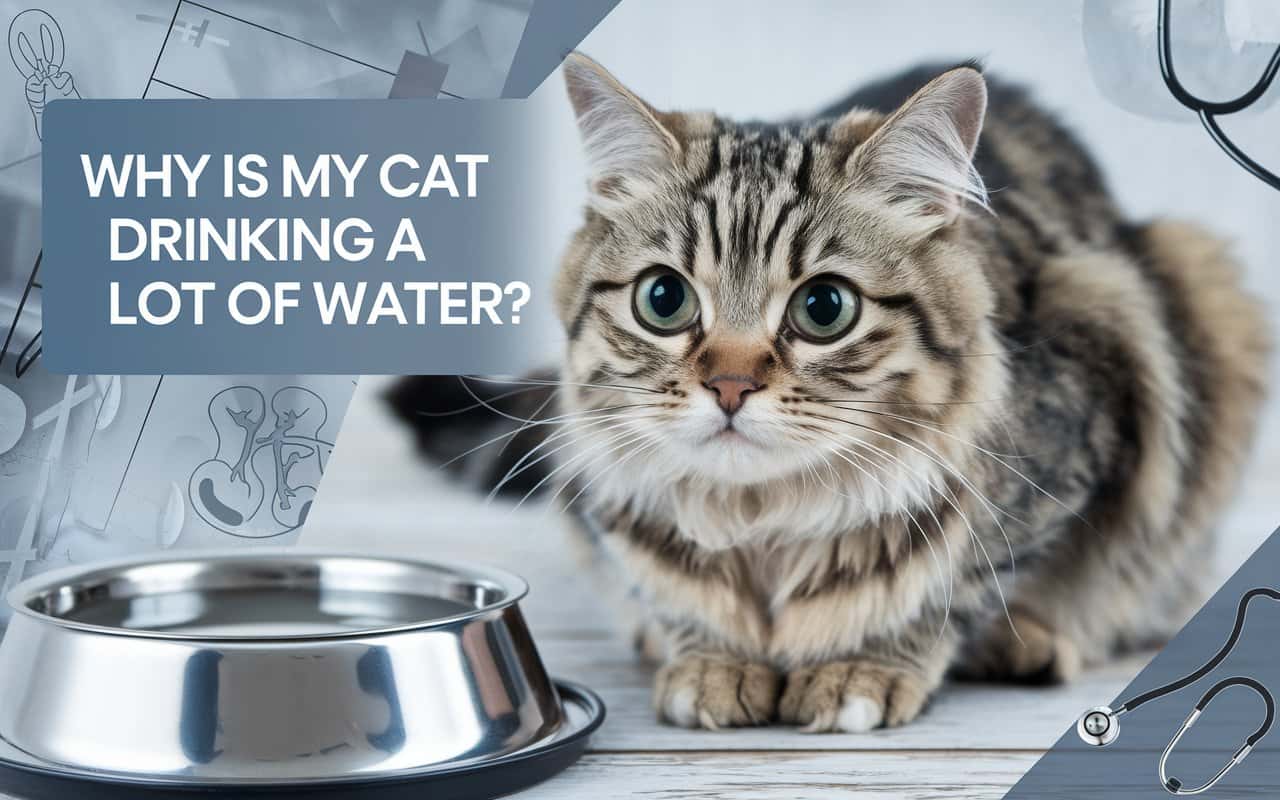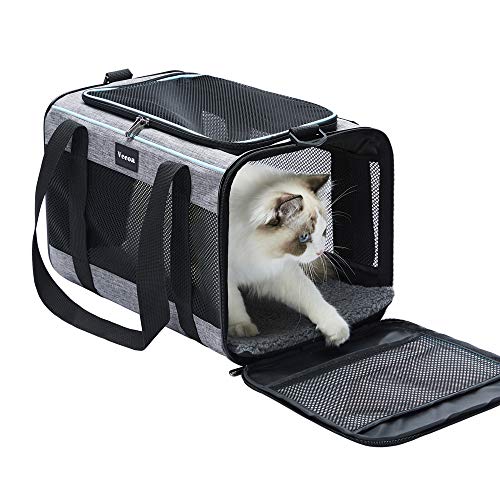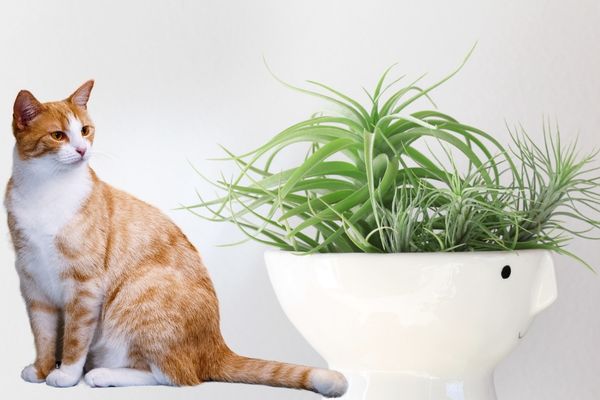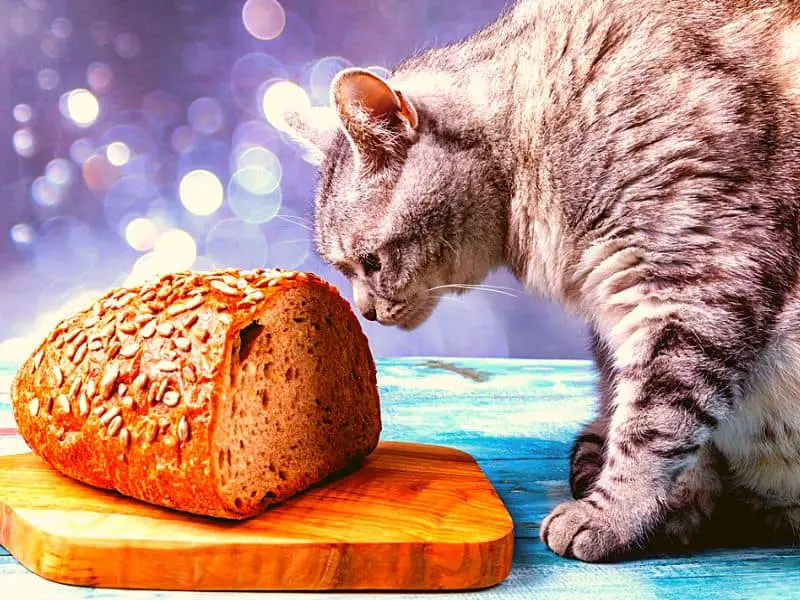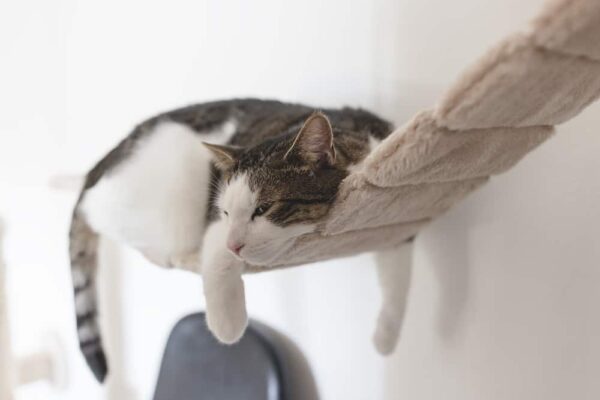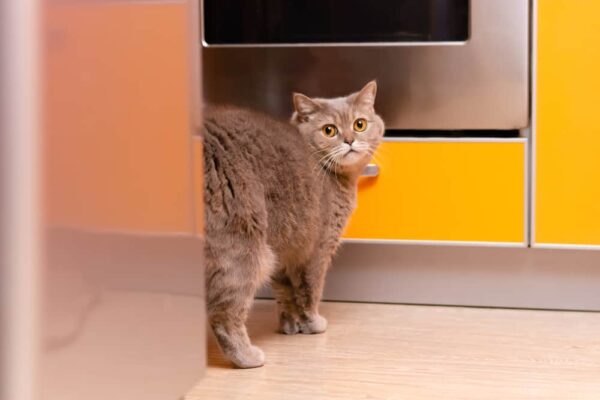Maybe you are concerned and think, why is my cat wheezing? Some common reasons for a cat wheezing are hairball, the bone structure of the face, lungworms, heartworms, allergies, and asthma. In addition, there may be temporary wheezing due to over-activeness and playfulness.
Table of Contents
ToggleSo, cat wheezing doesn’t always mean serious health issues. But as a conscious owner, you need to know details about this. Let’s know what are the potential causes of cat wheezing is and what the available treatment is? All you will get from this guide.
What is wheezing, and how does it occur?
Wheezing occurs when breath comes out forcefully through the closed nasal passages. It can be accompanied by loud noises and other health problems like coughing or nasal discharge. If your cat continues to wheeze with its mouth open, you should quickly seek the vet’s advice.
What are the causes of wheezing?
Why is my cat wheezing and throwing up? a cat can gasp because of the common allergies, playing activeness, serious health issues, asthma, infection, or blockage in the lungs. Here are some common causes that can be related to cat wheezing.
Asthma:
Asthma is the most common causes that can cause of cat wheezing. If you notice your feline buddy is gasping for a long time, then go to the vet to determine if it has been affected by asthma. However, let’s know the symptoms of asthma in a cat.
- Wheezing with breathing difficulties
- Rapid breathing with coughing
- Mouth opening when breathing
- Vomiting and fatigue
Hairballs:
Cats are always licking their bodies, which can accumulate a hairball in their stomach. This hairball makes a cat feel discomfort, and they try to cough or wheeze, retch, or gag. So, take a close look at your cat if they face problems with a hairball.
Allergies:
Cats can suffer from dust, pollen, mold, and smoke allergies. And because of the allergic reaction, a cat can wheeze with short breathing.
Foreign Objects:
Wheezing can occur when a cat takes any objects stuck inside its respiratory system. In this case, a cat feels extensive discomfort and tries to relieve that. It can also lead to wheezing.
Stress:
Cats are emotional and feel stressed like a human. And stress can cause your cat’s shortness of breath. So, ensure them a cool environment. Hence, could you take a look at their mental health? And always try to keep away the from louder noises and accompany them to prevent loneliness.
Respiratory Infections:
The upper respiratory infection (cat flu) is very threatening to a cat. And this infection leads a cat to sneeze, cough and wheeze.
Heartworms:
Heartworms are one kind of parasite that developed into the blood vessel of a cat’s heart and lungs. Heartworms can also cause cat coughing and wheezing. It is also known as heartworm-associated respiratory disease (HARD).
Heart problems:
Cats can also have trouble breathing due to heart disease. Fluid is accumulated around the cat’s lungs when they have a heart failure history. As a result, they can wheeze continuously. Moreover, this could be a cardiac problem too. So, make sure about it by the suggestion and test your vet provides.
Here's a related post that you might find useful. Breeds of Flat Faced Cats: The Ultimate Guide to Adorable Companions
What does Wheezing in Cats sound like?
The sound may differ depending on the reason for wheezing. But generally, a wheezing sound seems like choking, raspy, or sneezing. Some wheezing can stay for a shorter time. On the other hand, some wheezing can be life-threatening for your cat. So, take a closer look at your cat to know what does cat wheezing sound like? if their breathing is heavier, rapid, and continuous for a long time. Remember that longer and heavier breathing is a sign of serious health issues for a cat.
When Should You Be Concerned About Your Cat’s Wheezing?
There are several reasons for wheezing a cat, but they are not serious. So, when should you be concerned about it? Here are some following symptoms that indicate serious illness in wheezing.
- Wheezing with coughing and choking sounds
- No hairball was expelled despite continuing wheezing
- Breathing difficulties increase within a short time
- Stop eating and drinking with laziness
- Blue tint to the gums and rapid breathing
What treatment a vet does if my cat is wheezing?
When you notice your cat wheezing continuously, go to a vet for an emergency consultation. Generally, the vet might ask you about your cat’s wheezing details. It is best to bring a cat wheezing video and show it to the vet. It will help the vet to give cat wheezing treatment. If a vet suspects that your cat needs medical treatment, then he or she can give some tests to do.
What is the potential test for further treatment of cat wheezing?
Chest X-rays:
A sedative drug is used to make a cat sleepy to take a precise X-rays
Blood tests:
Blood tests should do to know the active infection like kidney diseases, upper respiratory infections, and heartworm infection
Bronchoscopy:
It refers to an endoscope to figure out the foreign objects, inflammation, and parasite
Airway washes:
Collecting fluid from lower airways to know the details of the cat’s wheezing
How is cat wheezing treated?
After the initial inspection, the vet will give your cat some tests and decide what treatment is needed. But the common treatments are here.
Steroid drugs:
Steroid drugs are used as an anti-inflammatory treatment. A vet may give steroid tablets or injections to relieve nasal inflammation.
Bronchodilator drugs:
Salbutamol tablets are commonly used to inhale respiratory problems in humans and cats. This drug works great to open the narrowed airways and provide comfort for cat breathing.
Here's a related post that you might find useful. Longest Living Domestic Cat Breeds: Discover Their Secrets
Health care to prevent cat wheezing
Weight control:
Is your cat overweighted? Then wheezing can cause due to the overweight. It is the first and foremost task to control their weight. Having extra weight can make a cat tired during playing and jumping. Although this type of wheezing is temporary, it should be controlled.
Environmental changes:
Asthma-related wheezing can cure with a change in environment. Your vet may suggest keeping away your cat from the asthma triggers like dust, mold, smoke, and several air fresheners and diffusers. Clean the home regularly where your cat stays most of the time. A vacuum cleaner is best to reduce the dust and mold.
What Is Not Wheezing?
There has some confusing noise that may seem like wheezing, but those are not wheezing.
Whistling:
Why my cat sounds congested when breathing? whistling may seem like wheezing, but it occurs from congestion. Congestion means a temporary breathing problem due to nasal blockage. It is mostly happened with indoor-outdoor cats but is not permanent wheezing.
Stertor And Stridor:
Sometimes, you may notice cat wheezing while sleeping. It may happen with a cat occasionally. This is the sound of sniffing that can be heard during deep sleep.
Dyspnea:
Dyspnea is another breathing-related problem. It refers to a lower respiratory problem.
FAQs:
- How do you know if your cat has fluid in its lungs?
Here are some symptoms. By following these, you can define if your cat has fluid in its lungs.
- Deep and rapid breathing with difficulties
- Mouth opening with crackling when breathing
- Wheezing with dry coughing
- Increases respiratory rate per minute
- Blue or grey discoloration
- What does Cat asthma sound like?
Cat asthma sound is similar to human asthma sound. The air can’t pass properly when the nasal canal is partially closed by inflammation. As a result, the airways pass that occur wheezing with sound. If you notice longer wheezing in your cat, go to the vet soon.
- What is the difference between cat coughing and wheezing?
Coughing is a factor that comes and goes often, but wheezing stays consistent. So, you can recognize cats coughing and wheezing by hearing their breathing sounds from close to them.
In closing:
Cat wheezing is a common scenario that is often seen in cats. Although it is not a serious factor most of the time, it may sometimes be threatening. So, it is crucial to ensure the potential reasons for wheezing and the required treatment of wheezing. Vet’s advice should take if you suspect serious illness with wheezing. And always ensure a clean environment for your feline to prevent wheezing before it happens.


